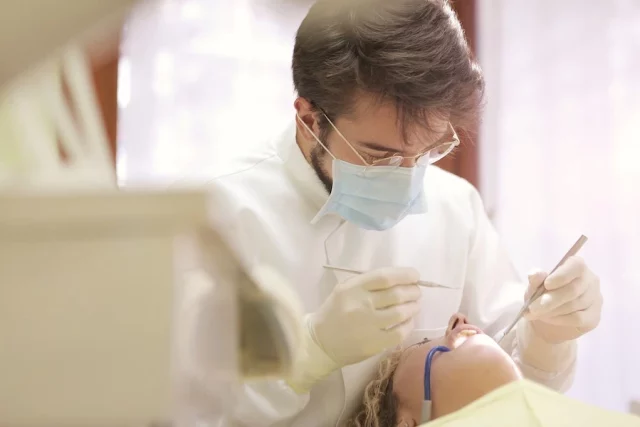Having a healthy smile is not just about looking good, it’s also important for maintaining overall health. Poor oral hygiene can lead to serious conditions like gum disease and tooth decay, which in turn can contribute to other health problems such as diabetes and heart disease. Taking care of your teeth is an essential part of taking care of your body, so here are some top tips on how to maintain a healthy smile. From brushing twice daily with the right technique to visiting the dentist regularly, following these steps will help ensure that you enjoy a lifetime of good oral health!
1. Brush Twice Daily:
Brushing your teeth twice a day with fluoride toothpaste is essential for removing food particles and plaque that can lead to decay and gum disease. Make sure you brush all surfaces of the tooth, including along the gum line, and use a soft-bristled toothbrush to avoid damaging enamel or causing irritation. In addition, flossing regularly can help to remove plaque and food particles between the teeth and reach areas that are difficult for the toothbrush to clean. This will help to keep your teeth and gums healthy. Also, don’t forget to brush your tongue to remove bacteria and freshen your breath.
2. Eat A Balanced Diet:
Eating a well-balanced diet is essential for maintaining good oral health, as it helps to keep teeth strong and reduce the risk of cavities caused by sugar or starches in food. Foods high in calcium such as dairy products, green vegetables, nuts, and seeds are important for strengthening tooth enamel and keeping gums healthy. Limit sugary snacks and drinks between meals, as these can increase the risk of tooth decay. If you do indulge in sugary foods or drinks, make sure you brush your teeth soon afterward. For example, you can keep a travel toothbrush with you so that you can brush your teeth after eating. Also, make sure you drink plenty of water to keep your mouth hydrated and reduce the risk of a dry mouth.
3. See Your Dentist Regularly:
Regular visits to the dentist are essential for maintaining good oral health. Visiting the dentist twice a year (or more frequently if advised) will help ensure any signs of dental problems are identified and treated early. In addition, regular cleanings can help remove plaque and tartar from hard-to-reach areas and prevent decay caused by bacteria in the mouth. Regular exams also provide an opportunity for your dentist to check for signs of oral cancer or other systemic diseases that may be present in the mouth. This type of preventive care is the best way to ensure that your smile stays healthy and strong. For example, if your dentist notices a small cavity from the exam, they can treat it before it becomes bigger and more painful.
4. Use Mouthwash:
In addition to brushing and flossing, using an antibacterial mouthwash can help reduce plaque buildup and protect against tooth decay. Mouthwashes can also freshen breath and kill bacteria in areas that are difficult to reach with toothbrushes or floss. Make sure to read the instructions on the label and use mouthwash as directed. In addition, talk to your dentist about what type of mouthwash is best for you. This will help ensure that you are getting the most benefit from your mouthwash. For example, some types of mouthwash may be more effective for people with dry mouths or those at risk for gum disease.
5. Get The Necessary Treatments:
If you have existing dental problems such as cavities or gum disease, it is important to get the necessary treatments right away in order to prevent further damage. In some cases, this may involve fillings, root canals, or even crowns and bridges. If left untreated, these issues can lead to pain and discomfort as well as an increased risk of tooth loss. Talk to your dentist about the best treatment options for your particular situation so that you can restore your oral health and get back to enjoying a healthy smile! For example, if you are in Riccarton and you need a root canal treatment in Riccarton then you can contact a local dentist to discuss the best course of action. This will help to ensure that you get the best possible results.
6. Quit Smoking:
Smoking is bad for your overall health and it is especially damaging to your oral health. Smoking increases the risk of gum disease, cavities, and tooth loss by weakening tooth enamel and reducing blood flow to the gums. In addition, smoking can also cause staining of the teeth as well as bad breath, and an increased risk of oral cancer. If you are a smoker, quitting can help reduce these risks and improve your dental health. Talk to your doctor or dentist about strategies to help you quit smoking so that you can enjoy a healthier smile! Additionally, avoiding second-hand smoke is also a must to protect your oral health.
7. Wear A Mouthguard:
If you play sports or participate in any type of physical activity, it is important to wear a mouthguard. Mouthguards can help protect your teeth from injury caused by contact with other players or equipment. In addition, wearing a mouthguard can also reduce the risk of concussion due to its impact on the jaw. Make sure that the mouthguard fits correctly and talk to your dentist about custom-fit options if needed. This will ensure that you are getting the most benefit from your mouthguard and protecting your teeth while playing sports!
8. Consider Dental Implants:
If you have missing teeth, consider talking to your dentist about dental implants. Dental implants are permanent replacements for missing teeth and they look and feel like natural teeth. They can help restore function to your mouth as well as improve the aesthetics of your smile. Talk to your dentist about whether dental implants are right for you and make sure to follow the necessary aftercare instructions in order to ensure success with these treatments.
Overall, taking care of your oral health is essential for achieving and maintaining a healthy smile. Brushing and flossing regularly are key components to maintaining good dental hygiene, but there are other steps you can take as well such as using mouthwash, getting necessary treatments if needed, quitting smoking or avoiding second-hand smoke, wearing a mouthguard while playing sports, and considering dental implants if you have missing teeth. Taking these proactive measures will help ensure that your teeth remain in top condition so that you can enjoy the benefits of having a healthy and beautiful smile!














